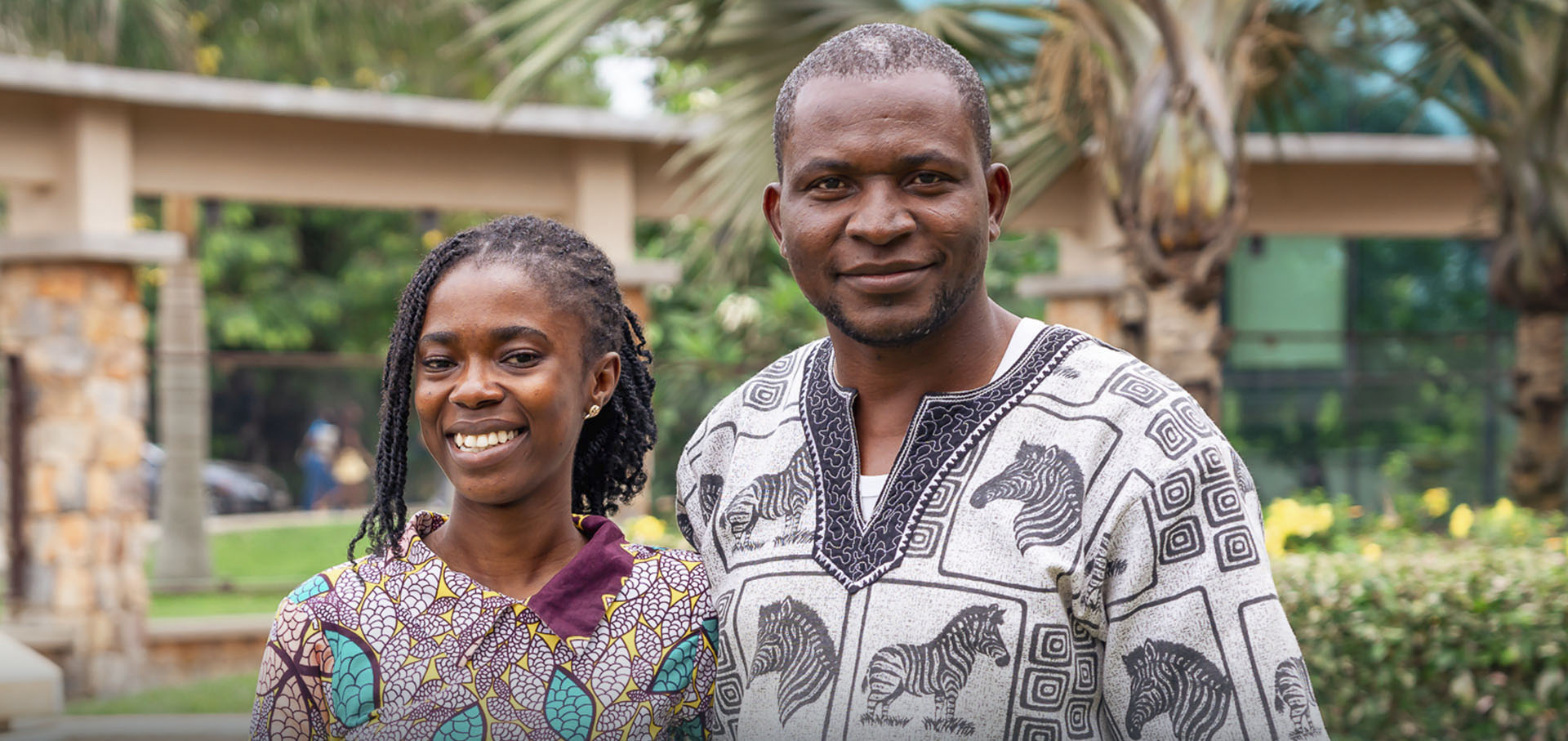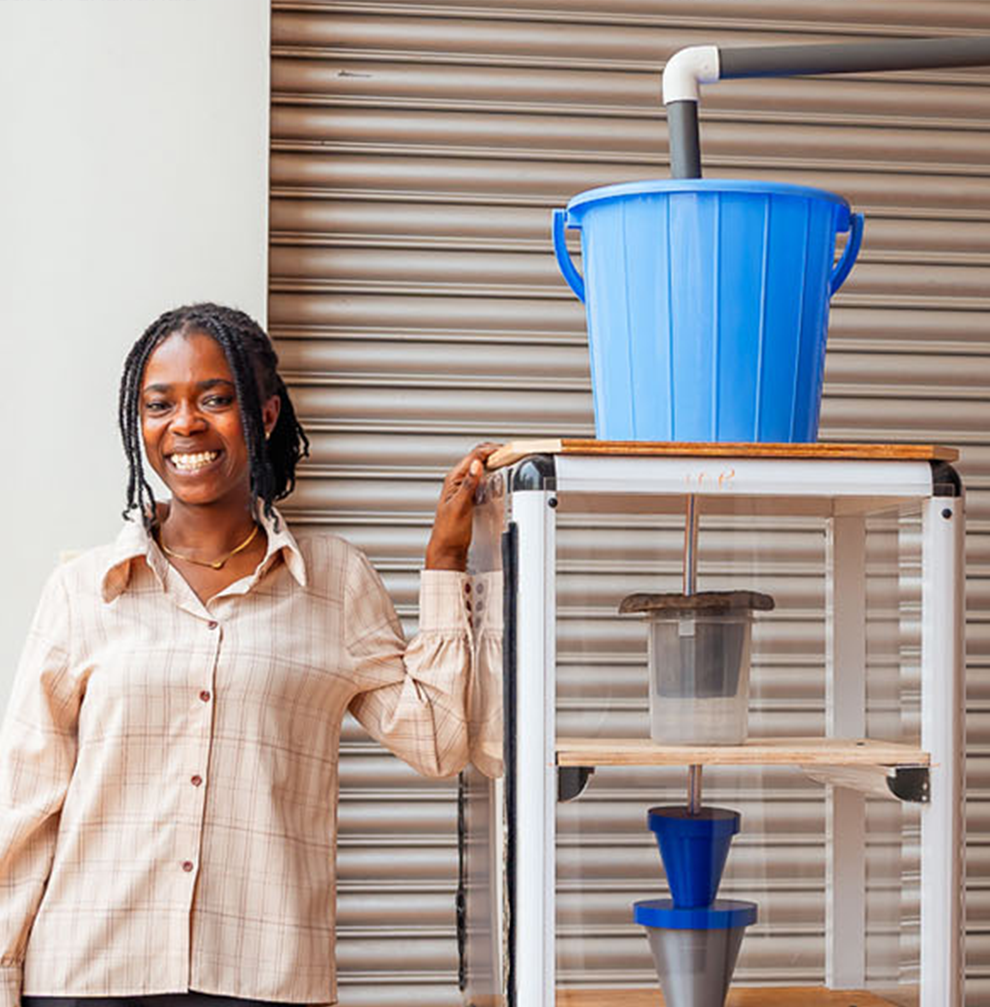
In Brief
- Ashesi Alumna Vera Borda ’22 received an award from the American Chemical Society (ACS) for a presentation on her research into a new design for polluted water filtration.
- The system uses ceramic filtration and a connecting system of absorption materials from agricultural waste, including orange peels, to remove heavy metals, dirt, and bacteria from polluted waters.
- The award was presented under the Materials for Water and Environment theme at the 11th International Conference of the African Materials Research Society at the Université Cheikh Anta Diop, in Dakar, Senegal.
Go Further
Vera was part of a larger Ashesi Engineering delegation – led by Senior Lecturer Dr. Yiporo Danyuo – that presented their research at the conference, focusing on addressing water pollution and clean water access in Ghanaian mining communities. Vera’s presentation at the conference was based on her senior-year capstone project at Ashesi, which focused on creating a filtration system for polluted drinking water.

A Multi-Year Effort
Vera’s project was initiated in 2019 by Kofi Addae-Boahene ’20 for his senior-year capstone project and was supervised by Dr Yiporo Danyuo (right in photo). However, due to challenges posed by the temporary closure of Ashesi’s campus during the COVID-19 pandemic, Kofi could not meet the project’s initial goal. Considering the importance of Kofi Addae-Boahene’s work and his inability to complete it, Dr Yiporo encouraged other students to advance the preliminary research.
“Sometimes students start great capstone projects and cannot complete them before graduation,” Dr Yiporo explained. “However, some can be seen to completion by other students, especially when the impact of the work could be significant.”
An 85% Reduction in Water Turbidity
In 2021, Khadijatu Nayi Alhassan ’22, Kwame Boadi ’22, and Vera Bordah ’22 reviewed and optimised the initial efforts started by Kofi and further developed by others. They concentrated their efforts on additions to the water filtration system to reduce the turbidity of polluted water. Their design saw an 85% reduction in water turbidity, which enabled contaminated water to be reclaimed for irrigation and other non-drinking purposes. The team hopes to see the project further developed, with the ultimate goal of a system that can thoroughly purify polluted water.
“My AMRS2022 experience was stimulating, helping me discover various fascinating research in materials engineering,” shares Vera. “The conference allowed me to grow my network and make major career decisions.”
“Societies like the AMRS continue to encourage the unearthing of the material resource base in Africa,” added Dr Yiporo. “We need to understand our resource base as Africans and figure out how to change it and add value for our benefits which is what these students are doing with research like this.”
Share this story

